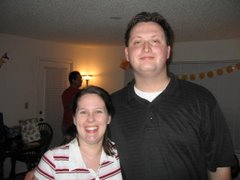I saw this today and thought it interesting. Stan Lee explains how comic-book movies work and don't work, and I really think it applies well to how books translate to film, and why they fail. Here's the story:
1. Don't forget what made the comic popular.
"Let's not think about comics for a moment. A lot of times a great-selling novel is turned into a movie, but the people producing the movie omit the very element that made the novel a bestseller. That often happens with comics. So often in transforming it into a screenplay they leave out the elements that made the comic book popular. In the case of Spider-Man and the X-Men, they retained most of those elements. Bryan Singer captured exactly what the comic books were trying to portray — the idea of these superpowered characters who instead of being welcomed by the human race were shunned and hated and hounded. He's a perfect example of a guy who wasn't a fan but was a fast learner. With the films that don't work, maybe the people behind it don't have enough confidence in the original material."
2. But don't worry too much about the fans …
"They care so much that it's important to them that everything is done just right … but it would be a bigger problem if they didn't care. But they are bright and fair and willing to wait, and now, for instance, you can't picture anyone else but Tobey Maguire playing Spider-Man. I think fans are sophisticated enough to know that you have to do things differently for the movies."
3. … Or the mythology.
"Jim Cameron originally had planned to do Spider-Man many years ago, and he told me that he thought it would be better if the web came out of the hand organically rather than through a web-shooter. So there are two great filmmakers, Cameron and Sam Raimi, and they both felt it would be better the way they did it."
4. Spend the money!
"Captain America — that was terrible! Didn't expect me to say that? Well, it was terrible. It was a very low budget movie, a quickie; everything about it was not as good as it should have been. Whoever played the Red Skull was pretty good, and the guy who played Captain America … he tried his best, but it was corny; it just wasn't well done."
5. Think: A party!
"Spider-Man movies are my favorites — my second favorites are the X-Men movies. These superhero movies are so different from the average cops-and-robbers movie. I mean, you have colorful characters, you have great special effects, it's like going to a party! On the other hand, Ang Lee's direction in Hulk was brilliant, but they made it a little too heavy. I wouldn't have played up the business of Bruce Banner having been such a mistreated young man. It was a little too depressing. Same with Daredevil — I really enjoyed it, but again I thought they really made a little too much of his suffering. To me, Daredevil is a more enjoyable fun type of character in that he always had a wisecrack."
6. Remember: The villain makesthe story.
"Think how important he is in the comic book itself. Once you've established the hero, you need a villain who seems to be some way superior to the hero so it looks as if there's no way the hero is ever gonna beat this guy. And that's what makes it fun! How is the hero gonna survive? How's he gonna triumph? — I love Dr. Doom. I love Doc Ock. I love all of them."
7. Keep it simple.
"I thought Daredevil was better than most people. But maybe because I have a very simplistic mind, I would have only had one villain. Either the Kingpin or Bullseye. I thought having the two of them detracted from each other."
8. Keep it suspenseful.
"Look at Heroes; it's successful, week after week, because it keeps you in suspense all the time! Strange things happen, and you don't know why they're happening — but they're very interesting things, and you want to know what's behind it all. It's interesting to me that now you're seeing things you haven't seen before on television. In Heroes, you're seeing people with these superpowers but they're done very realistically. They seem to be these people you would meet in everyday life, and you wonder how did they get their power? It keeps you in suspense, and that's the perfect formula."
9. Hire actors who care …
"I'm a big name dropper, so I'll tell you — I had lunch with Robert Downey Jr. some time ago because he wanted to discuss his character for Iron Man. Just listening to him talk, here's a guy who cares about the role he plays. He wanted to know everything about Tony Stark: How did I feel about him? How did I think he should be portrayed? I'm sure he's spoken to a hundred other people about it, so by the time you see him on the screen I'm convinced you're gonna be looking at Tony Stark."
10. … Even in the smallest parts.
"If you have any influence with the Motion Picture Academy, I kind of wish they would give an award for the Best Cameo of the Year. I don't think I'd have much competition, certainly for the most cameos."
Monday, July 2, 2007
Subscribe to:
Post Comments (Atom)

No comments:
Post a Comment